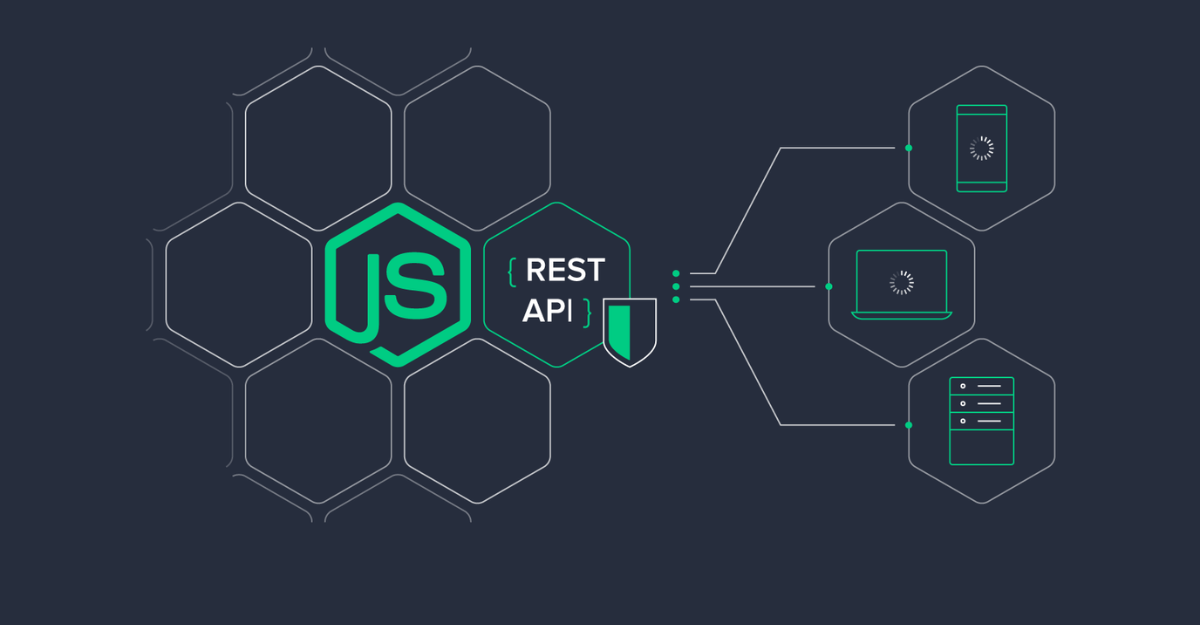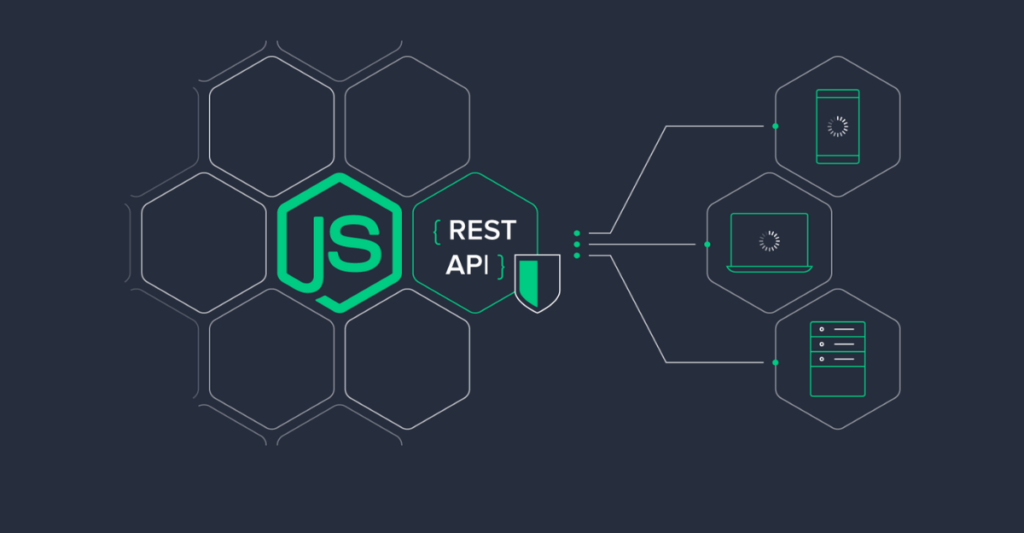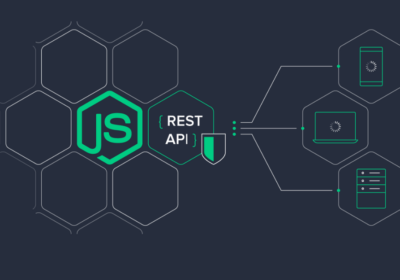
Nodejs Facts: What Is It, How It Works, and How It Can Be Used in 2023?
Node.js is a JavaScript runtime environment that is widely used in web development. It offers benefits, like reducing development costs and improving application performance while using system resources. Since its inception, Node.js has gained popularity due to its features.
Over 30 million websites utilize Node.js. How does it actually work? What can we expect from it in 2023? In this article, we will delve into these topics and more.
When should you consider using Node.js?
Node.js is an open-source server runtime environment for interpreting JavaScript code. It is compatible with operating systems, including Windows, Mac OS X, Linux, Unix and more.
Developers can leverage Node.js to rapidly build back-end, end, and full-stack applications using JavaScript.
Ryan Dahl created Node.js in 2009. It is currently maintained by the OpenJS Foundation. Its primary objective was to facilitate the creation of network applications. By utilizing Node.js—an event-driven runtime—you can enhance the scalability and speed of your applications.
How does Node.js work?
Node.js efficiently handles client requests by processing them and returning responses promptly.
In Node.js there is a concept called “threads” that is used to handle I/O operations and requests.
These threads are essentially sequences of instructions that run on the server simultaneously to serve users at once. However, in Node.js, there is one thread, for processing the event loop. This means that multiple queries can be handled concurrently on a thread when it comes to Node.JS development services.
Why use Node.js?
One reason why companies use Node JS is because of how well it manages requests for server files. Node’s scalability is a further consideration. The lack of locks in Node.js’s design makes deadlocks impossible due to the fact that almost no function in the framework directly performs I/O.
Node JS requires extremely minimal memory even when processing several requests simultaneously since it works in a single thread and is asynchronous.
A survey of developers who work with Node.js found that the platform allowed them more time to work on other projects, reduced software development expenses, improved application performance, and led to more pleased and engaged users.
How Node.js affects the business?
In the following, we’ll examine many key aspects of NodeJS that contribute to its popularity.
- Node.js Wins When It Comes to Speed
One of Node JS’s strongest selling points is the language’s lightning-fast response time while processing queries.
Since its I/O operations do not conflict with one another, you may do things like read files, send emails, and query a database simultaneously.
Node JS facilitates the spread of JavaScript by enabling its execution in both the client’s browser and the server. JavaScript is often used for front-end programming, but Node.js brings its power to the back end.
- Node.js shines when it comes to database queries
Node.js may also be used to do database queries. Node.js is well suited for this sort of work since many existing NoSQL databases are built in JavaScript. Developers may be able to save time and effort while dealing with databases thanks to the seamless integration between NoSQL databases and Node.js.
The popularity of Node JS with databases goes beyond the language itself. Because its data is stored in the lightweight JSON format, it can execute swiftly without the data translation step required by more complex frameworks like Ruby on Rails.
When and how should I use Node.js?
We’ll go through some common uses for Node.js below.
- Chat application
Since Node.js immediately processes incoming messages without building a backlog, it is well suited to the development of chat apps.
- API on Top of an Object DB
Since Node.js may be used as an API on top of an Object DB, the aforementioned application can benefit from having a unified data format across the back end and the front end.
- Queued Inputs
Node.js is a wonderful choice for handling queued inputs since it is scalable and can postpone database write-offs until later processing.
- Data streaming
Since Node.js is so well-suited to data streaming applications, streaming systems like Netflix make use of its built-in modules for constructing written and readable data streams.
- Single-page applications
The concept behind “single-page applications” is to provide the whole of the software in a single location on the user’s browser. This app’s ability to handle asynchronous calls and data-intensive tasks is crucial to a smooth user experience, and Node.js is a natural fit for these requirements.
When Is Node.js Not the Best Option?
We’ve discussed Node JS’s potential, but it’s not a good fit for every project. We’ll explore some potential outcomes here.
- Server Tasks That Require a Lot of Processing Power
Node.js routinely delivers positive results in a variety of circumstances. Although it may have more than one core on your computer or virtual machine, due to its single-threaded nature it will only utilize one.
Fortunately, there are Node.js plugins that allow you to build up parallel processes and manage several threads simultaneously. It’s important to note that there’s more work required in setting up this feature.
- Submissions for the CRUD Framework
A straightforward CRUD app that obtains data from the server directly, without the use of an API, is the solution to the question “what can I do with Node JS?” But, the robust features of Node.JS makes it easier.
Conclusion
Now we know how NodeJS can assist in web development. Indeed it offers several benefits to create high-end, flexible, and fully-functional web applications.
Node has become the first choice of developers due to its performance and scalability. It is widely used to create real-time web apps, including collaboration tools, gaming, and chat applications. NodeJS eliminates the need to have a large workforce. It minimizes the server load required to keep your website running.
In this way, it improves the page load time and makes the website faster. Including all such features, NodeJS provides significant community support to provide uninterrupted support to developers.

















